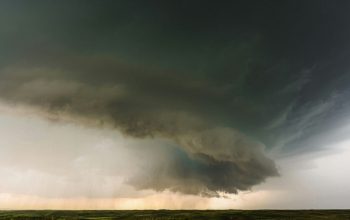In 2010, 63% of Iowa voters approved the constitutional amendment that created the Natural Resources and Outdoor Recreation Trust Fund. The goal of which would generate sustainable funding for Iowa’s water quality and outdoor recreation through a 3/8th of a cent sales tax. Yet, no sales tax has been put in effect by the Iowa state legislature! Now, with a fiscal surplus of $1.24 billion, the largest in state history, four Iowa legislators and two conservation advocates want funding to go into the trust. Lawmakers from both major parties say natural resources deserve attention but they are unsure given interest in tax cuts.
Sen. Sarah Trone Garriott, D-District 22, sees the excess surplus dollars as an opportunity to support Iowa’s 83 state parks and recreation areas, but is concerned with the current projection of how the Iowa Legislature will use the surplus. In a conversation with IowaWatch, Garriott shared “We saw in the last two years with a pandemic how our state parks have been such an important resource for Iowans. More people than ever are using them and appreciating them, and we know that our state parks are understaffed and need a lot more support.”
Visitations to state parks skyrocketed to a record 16.6 million last year, IowaWatch reported. State employee and visitation data show a ranger force of 55 was slashed to 35 since 1995. In 2019, a total of 5,552 volunteers provided 71,396 hours of service.
In 2020 Governor Kim Reynold proposed the Invest in Iowa Act, which included a reformulated sales tax increase and reduction to other taxes to fund mental health programs and conservation. Invest in Iowa would only fulfill around two-fifths of the appropriations under the initial 2010 amendment. Invest in Iowa has yet to be reintroduced after Reynolds sidelined it last January as the state recovered economically from COVID-19. The governor declined to comment to IowaWatch on the Natural Resources and Outdoor Recreation Trust Fund and state parks funding.
Robert Riley, chief executive officer of Riley Resource Group and a conservationist, is not hopeful that lawmakers will act soon. “For 11 years, the Legislature has been non-representational of their constituents, so 12, 13, or 14 years won’t make them lose any sleep,” Riley said. “The will of the people in 2010 was plain – devote $180 million new dollars to conservation and outdoor recreation.”
Rep. Norlin Mommsen, R-District 97, would like to see cooperation. “We need to act more as partners and not as adversaries. I sometimes think in politics, if you’re for one thing, then I have to be against it and we have to bridge that gap,” Mommsen told IowaWatch. “When we talk about the quality of life in Iowa and getting people here, I think that’s an issue that we can all agree on.”
A state study, prepared by the Reynolds administration, says the economic benefits from outdoor recreation are great, generating $8.7 billion in consumer spending, employing 83,000 Iowans, contributing $2.7 billion in wages and $649 million in in-state and local tax revenue. Those numbers come from the 2018 quinquennial update of Iowa’s Statewide Comprehensive Outdoor Recreation Plan (SCORP).
The Iowa Conservation Alliance is a nonprofit organization dedicated to promoting the sound management of Iowa’s fish and wildlife resources; the group has consistently supported the sales tax increase needed to enact the trust fund. “Periodic polls have shown that support for funding this trust fund has certainly not decreased over the years. The Iowa Conservation Alliance has always supported the small increase in the sales tax to start funding the trust,” Fred Long, president of the Iowa Conservation Alliance, said in an email.
As the ranking Democrat for the Natural Resources and Environment Standing Committee, Trone Garriott said that discussing appropriations is a priority.“Unfortunately, what I’ve been hearing is that there’s going to be a focus on keeping almost all of our state budgets status quo. That makes me concerned because we have some pretty pressing needs, like mental health, affordable childcare, and natural resources that should be addressed,” she said.
Sen. Joe Bolkcom, D-District 43, said he would like to see the surplus money reinvested into areas that would improve the quality of life, like state parks, but he is pessimistic.“We’ve had a really good surplus the last few years. We’ve had money, but Republicans just do not want to spend money on this stuff. Looking at state parks, they can be big parts of rural communities, and it’s part of this de-investment that has made it so hard for people to live in rural Iowa,” Bolkcom said. “These Republican tax policies and economic policies are not funding things like maintaining our state parks, and I don’t see any increased investments in our parks.”
According to the Iowa Legislative Services Agency, $963.1 million of the surplus would go toward the Taxpayer Relief Fund, which may only fund tax-relief policies. Since Iowa law requires 10% of the state’s annual budget to go into the Cash Reserve Fund and the Economic Emergency Fund, $42 million will be set aside for these reserves, leaving roughly $233 million for lawmakers to appropriate in FY 2022.







